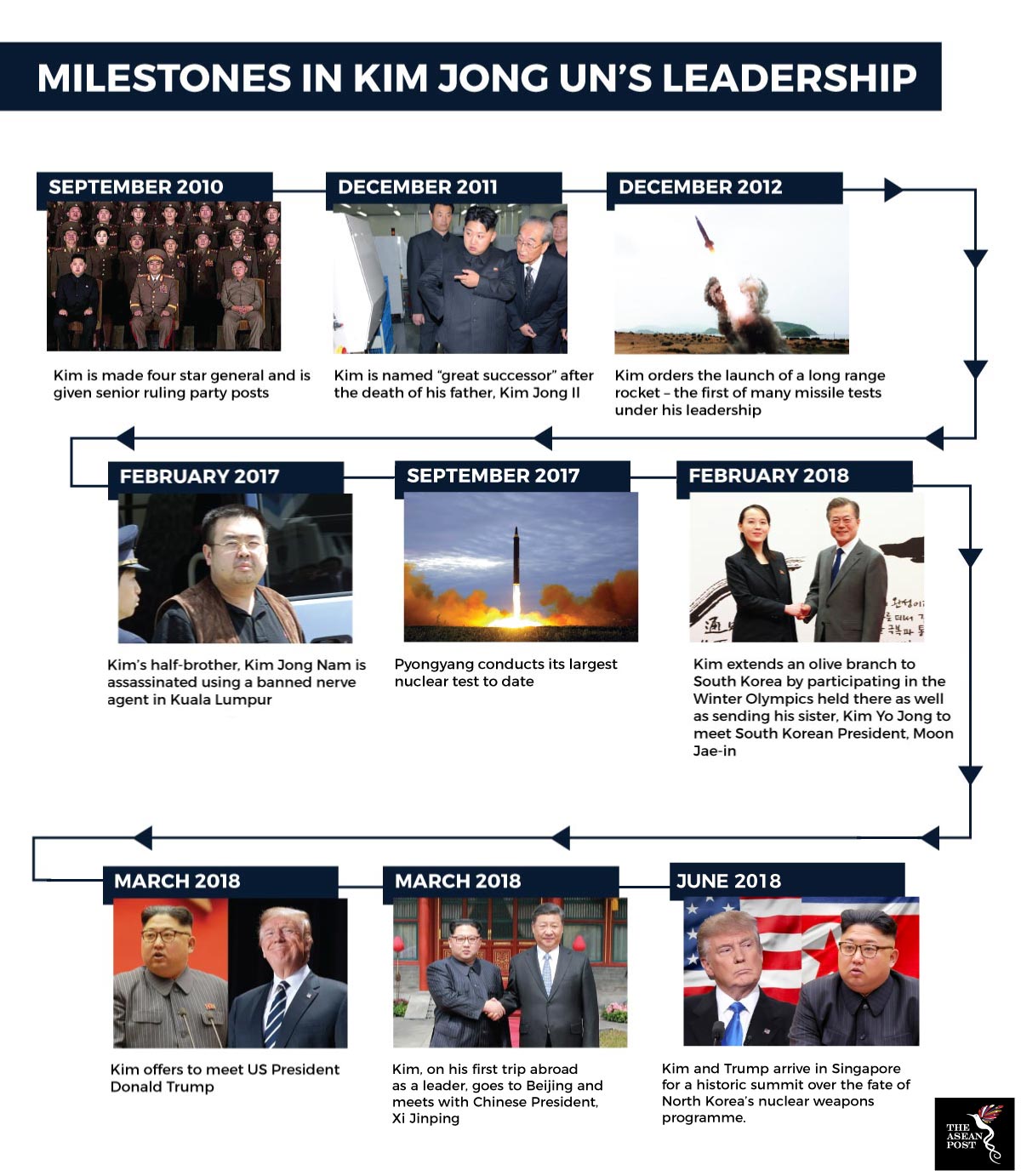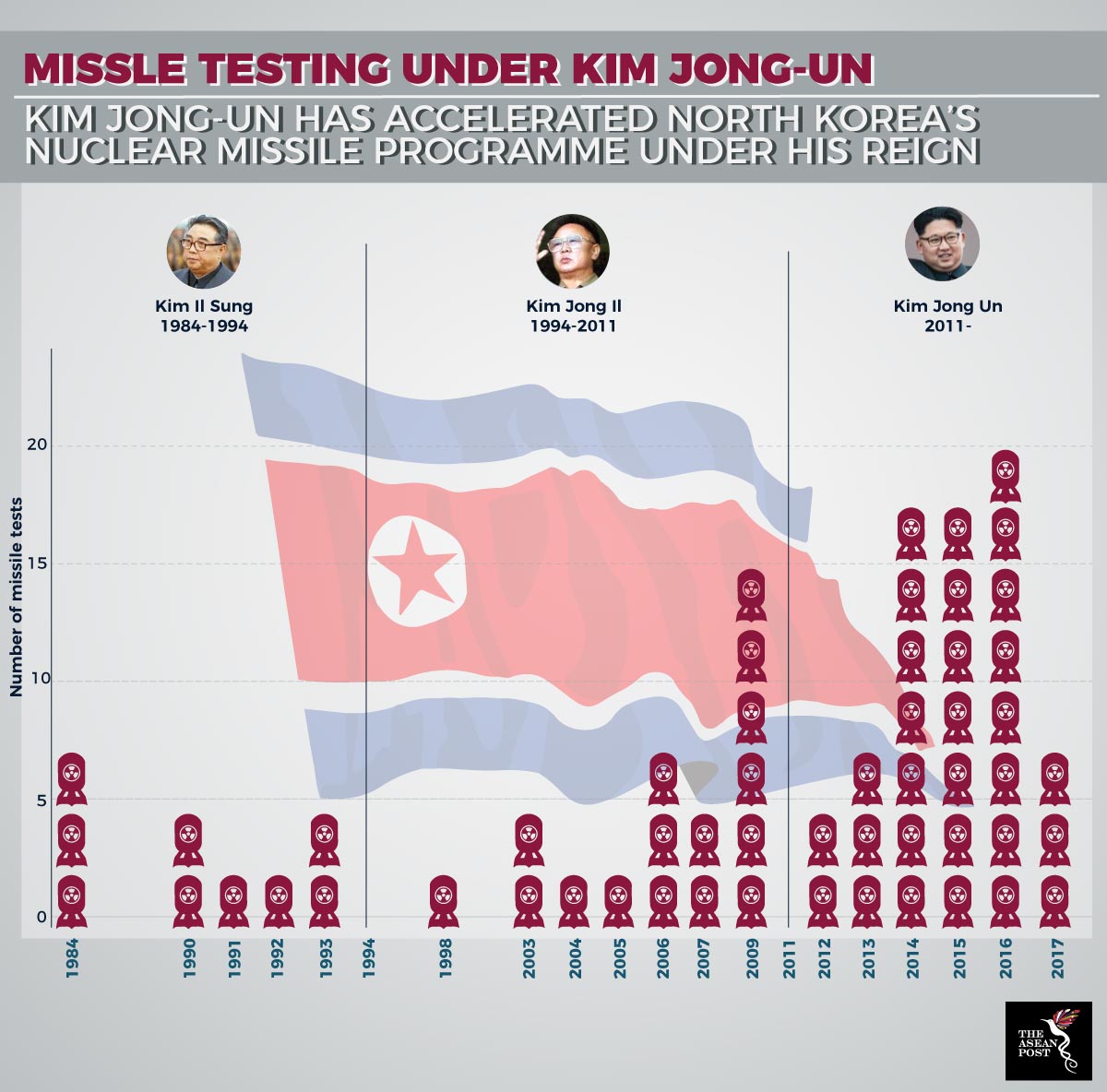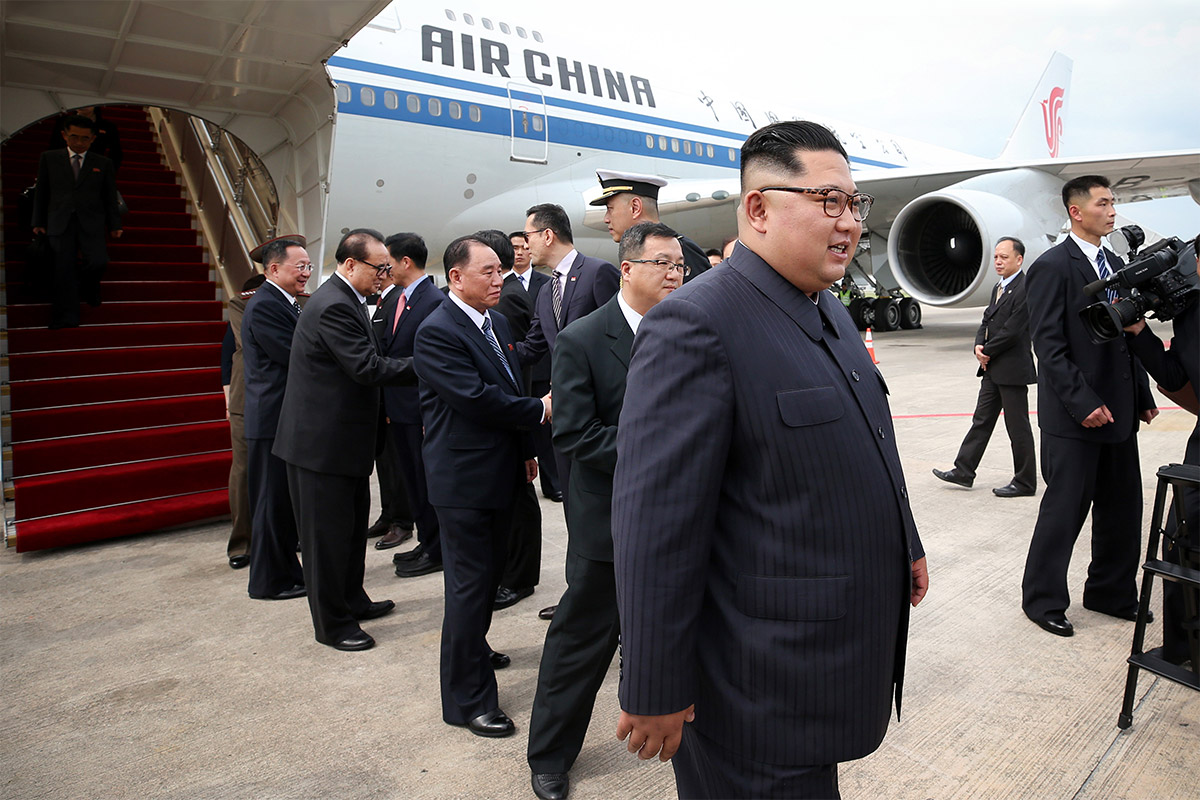Tuesday, 12 June 2018 will be a date etched in world history when Donald Trump meets Kim Jong Un as it will mark the first meeting between a sitting United States (US) President and a Supreme Leader of North Korea.
Departing from the G7 Summit, Trump called his meeting with Kim a “one-time opportunity” which “will not be wasted” on Twitter. He also said that he looked forward to meeting the North Korean leader who he believes would work hard in order to “create peace and prosperity for his land.”
Kim arrived in Singapore hours before Trump on Sunday amid tightened security on the island state. That same evening, he met with Singaporean Prime Minister, Lee Hsien Loong and thanked him for playing host for Tuesday’s meeting.
The event marks an extraordinary turnaround by Kim and Trump, whom just last year, were at each other’s throats – Trump threatening to rain “fire and fury” on Pyongyang and Kim referring to Trump as “mentally deranged.”
What’s at stake for Trump and Kim?
It is useful to note that the summit isn’t going to mark the definitive end of conflict in the Korean Peninsula, nor is it going to be merely a photo-op for both leaders. If anything – as alluded to by Trump himself – it marks the beginning of the process of bringing to a close the decades long rivalry between the two Koreas.
Daniel Chua, Assistant Professor at the Institute of Defence and Strategic Studies (IDSS) told The ASEAN Post that, above everything else, the summit represented a first step towards nurturing stability on the Korean Peninsula and it is by no means going to achieve anything substantial yet.
“Success would mean that both sides agree on substantive measures and actions that will denuclearise the Korean Peninsula,” he said in an email reply. “Sanctions on North Korea would also need to be reviewed.”
Chua also added that the signing of a peace treaty to end the Korean War will not be possible at this summit because South Korea is not at the discussion table.
“After this summit, there needs to be subsequent summits involving the US, China, North Korea, South Korea and even Russia. These are the parties responsible for the untidy end to the Korean War in 1953,” he said.
Technically, the two Koreas are still at war with one another as no official peace treaty was ever signed to replace the 1953 armistice that ended the Korean War.

Source: AFP
A positive outcome for the summit would be any form of progress on both sides towards a peace treaty but such intentions would hinge upon an initial agreement on denuclearisation.
In an email interview with The ASEAN Post, Hoo Chiew-Ping, an expert on Korean security affairs at the National University of Malaysia, holds that both issues are interlinked as Kim has set out to achieve what his forefathers had not been able to do.
“With a successful nuclear weapons program under his belt, he would want to attempt the unthinkable feat of securing a security guarantee from the US,” she said.
Meanwhile, Hoo posited that Trump would likely want to achieve what past US presidents had failed at - resolving the North Korean problem. Hence, this may result in a meeting that ends on a positive note.
“Different parties would have different takeaways from the summit no matter the outcome. Even if the summit is a failure, even if they don't reach an agreement or cannot agree on a joint declaration, Japan would see this as a "success" because their security interest is not harmed, but that would be detrimental to South Korea's Moon Jae-in's peace diplomacy,” she added.
Defining denuclearisation
Ultimately, the talks boil down to what both sides consider as “denuclearisation.” Washington has been demanding complete, verifiable and irreversible denuclearisation (CVID) from Pyongyang. However, the North wants the same principle applied to the US which would mean the removal of the nuclear umbrella placed over South Korea and Japan, as well as the withdrawal of US troops stationed in Seoul.
Pyongyang previously threatened to pull out of the 12 June talks after US national security adviser John Bolton alluded to North Korea having to follow a similar disarmament model offered to former Libyan leader, Muamar Gaddafi. The Kim regime is wary of such a model which they believe laid the foundation for the US invasion of Libya.
“As Trump is desperate in striking a deal that would mark his achievement as a breakthrough on the Korean impasse, anything less than a CVID may be negotiated,” Hoo opined. “But the consequences of his impromptu decisions will put the US government in a difficult position of having to implement or follow through on them.”
Echoing this sentiment, Chua opined that he expects Trump to give in to some of Kim’s demands.
“He [Trump] needs to enhance his foreign policy achievements during his first presidential term in order to improve his chances of re-election. Since the status quo is already bad, the upside for Trump is quite high,” he said.

Source: Bloomberg
This time round, Washington is faced with a negotiator that has a far superior nuclear arsenal compared to Libya under Gaddafi’s leadership. Hence, there is little doubt that Pyongyang would use this as a formidable bargaining chip during the talks.
Nevertheless, Hoo remained cautiously optimistic of the impact these talks would have on the denuclearisation of the Korean Peninsula. While she welcomes the possibility of international inspections of the North’s nuclear weapons program, she admitted that there could be problems arising due to the unstable nature of the Trump administration. Real denuclearisation, she said cannot be realised if there is a chance of the US back-tracking on a supposed security guarantee to Pyongyang.
The Beijing factor
Watching the progress of the summit closely would be China, which has long behaved like North Korea’s big brother. In late March, Kim visited China in his first ever foreign trip since assuming office.
China remains very much invested in North Korea. Historically, they helped the North in the Korean War, to the extent of forcing the largest ever American retreat in history. Economically, China remains Pyongyang’s lifeline as Chinese trade accounts for more than 90 percent of North Korea’s total trade.
According to Josef Mahoney, Professor of Politics at East China Normal University, whether or not the meeting fails or succeeds, China benefits. In short, failure would make China’s support even more treasured to the West and success would make Chinese support valuable to the Korean Peninsula.
“Peace and development have their own benefits for China as well,” Mahoney said, suggesting that China will likely be one of the primary benefactors from investing in the North if opening up followed, as some have predicted. “Furthermore, if the talks are successful, the US loses an entry point for positioning weapons systems on China’s border.”
“While some believe this summit wouldn’t take place if China hadn’t gotten serious about sanctions, I believe the key point is that if denuclearisation is to be a real possibility, it can only happen with China providing security guarantees that backstop whatever the US promises,” he remarked further.
Against the backdrop of a possible Nobel Peace Prize for the two, the world is now watching – both eagerly and with bated breath – as Trump and Kim get ready to meet at the luxurious Capella Hotel, located on Sentosa Island, off the southern coast of Singapore.
